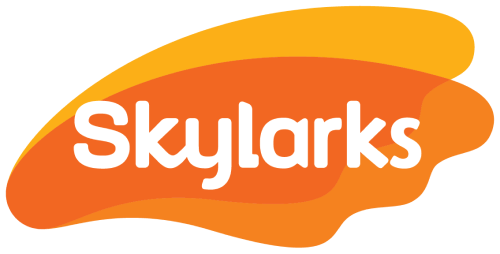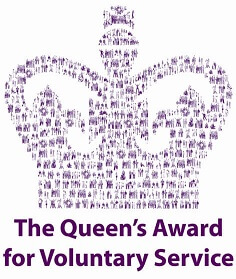Guide to Raffles, Sweepstakes and Tombolas
Raffles, Tombolas, Sweepstakes and lotteries - Keeping it Legal
Raffles, tombolas and sweepstakes are a great way to boost your fundraising and can generate funds for Skylarks with minimal costs.
Talk to us if you’re planning on organising any of these activities and we can offer guidance so you can choose the right option for you.
Raffles and sweepstakes are some of the most regulated forms of fundraising, so we’ve created this handy guide to help you make sure that your fundraising is safe and legal. There is full guidance available via the Fundraising Regulator site.
Both raffles and sweepstakes are classed as lotteries from a Gambling Commission perspective. The Gambling Commission is the regulatory body who govern gambling in England, Scotland and Wales and describe these three essential ingredients that make a lottery:
· You have to pay to enter the game
· There is always at least one prize
· Prizes are awarded purely on chance.
What type do you need?
Although you might use the term 'raffle' to describe tickets being sold in advance with a draw being advertised to the general public, the Gambling Commission describes this as a 'small society lottery'. We use the Gambling Commission terms on this page and have provided the definitions below.
Raffle: selling generic numbered tickets to win prizes, on the night of an event only.
Tombola: numbers are pre-assigned to prizes, with tickets drawn at random from a hat/drum.
Sweepstake: entrants pay to receive a ticket (often a team or competitor in an external competition, such as the World Cup or Strictly Come Dancing) with prizes for the winner(s).
Small society lotteries: a raffle where you can sell tickets in advance and the draw can be advertised to the general public.
More details on each are below.
Raffle
Basic description: using cloakroom-style/generic tickets for a prize draw at an event.
The simplest way to organise a raffle is to have one as part of an existing event. This is known as an incidental, non-commercial lottery and does not require a licence or registration with your council to run. For this type of raffle, you can use cloakroom-style tickets, bought in books of different colours from which you can sell strips of numbers. There are however some restrictions that you must adhere to.
These raffles can only be held as part of an event and tickets must only be at the event. If the event is being held for more than one day you can sell tickets on all the days of the event but not before or after.
Normally, winning tickets are drawn at an agreed time, with winners collecting/choosing their prize.
We recommend, where possible, asking for prizes to be donated, to help you raise as much money as possible. If you do find that you need to purchase prizes, the total prize costs claimed against the draw proceeds must not be more than £500.
The maximum permitted to be taken from proceeds for expenses is £100.
Tickets should be sold at a consistent price.
No rollovers are permitted.
Gift Aid cannot be applied to the money raised from raffles as legally buying a ticket does not count as a donation.
Tombola
Basic description: numbered tickets are pre-assigned to prizes, with matching tickets drawn at random from a hat/drum.
A tombola is a form of raffle in which prizes are pre-assigned a winning numbered ticket. Typically, cloakroom tickets are used, with prizes allocated to all those ending in a particular digit (traditionally a five or a zero). Players pay for a ticket, which they then draw at random from a hat or tombola drum and can instantly see whether or not they have won a prize.
You do not require a licence to run a tombola, but the tombola must take place during the course of an event. All tickets need to be sold and drawn during the event.
Sweepstake
Basic description: entrants pay to receive a ticket (often a team or competitor in an external competition, such as the World Cup or Strictly Come Dancing) with prizes for the winner(s).
Sweepstakes are also incidental, non-commercial lotteries. They can be a fun way to help raise money for Skylarks or boost your fundraising. There are some basic rules that you will need to follow if you are planning on running your own sweepstake.
All the rules shown in the raffle section apply as well as the following ones.
You need to decide before hosting your competition if the entry money will be split between the winner and Skylarks, or if you are going to have a separate prize with all entry fees going to the charity. Whichever approach you take, participants must be informed before they enter, and the host cannot make a profit (i.e. all funds will need to be donated).
Office sweepstakes can only take place in one office with people in the same premises.
You must not sell entry on the street or house to house.
If you are running a competition where people need to guess the square of a picture that an object is hidden on you will need to decide ahead of time which the winning square is and make sure that it is saved somewhere securely (for example, in a sealed envelope). If no one guesses that square, then the nearest guess is the winner.
Small Society Lottery
Basic description: a small society lottery has a top limit of £20,000 in ticket sales. This type of raffle allows you to sell tickets in advance and the draw can be advertised to the general public. You must register your raffle with your local authority licensing department, and this will involve a small annual fee.
Although you do not require a licence from the Gambling Commission to hold this type of lottery you must still make sure your tickets adhere to the rules set by the Gambling Commission.
You will need a person registered as the promoter and they are responsible for the lottery and what must be printed on all tickets. You cannot register under Skylarks.
Tickets must show the name of the charity, the ticket price, the name, and address of the organiser/promoter, and the date of the draw.
A small society lottery can raise up to £20,000 in a single draw and up to £250,000 over a year.
You must be 16 years or above to purchase or sell tickets.
At least 20% of the proceeds raised must go to Skylarks.
Up to 80% of the sales may be used for prizes and expenses.
You must follow reporting requirements set out by the local licensing authority.
Further information
For overall information and guidance, visit the Gambling Commission website.
Visit the Gambling Commission page on types of lotteries and their regulations to find out more about the different classifications of lotteries.
Need more help?
If you’d like to speak to a member of the team about your needs for your fundraising activity, then please don’t hesitate to get in touch.
Email: fundraising@skylarks.charity
We’re here to help you!


